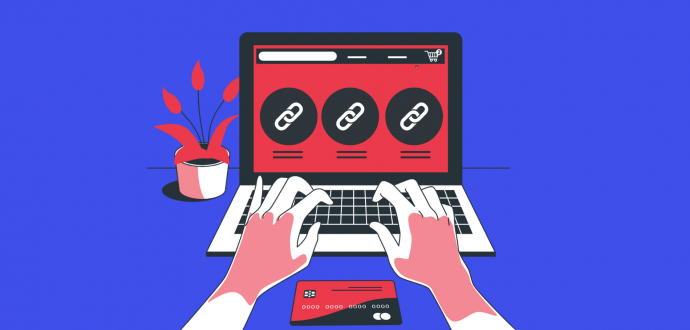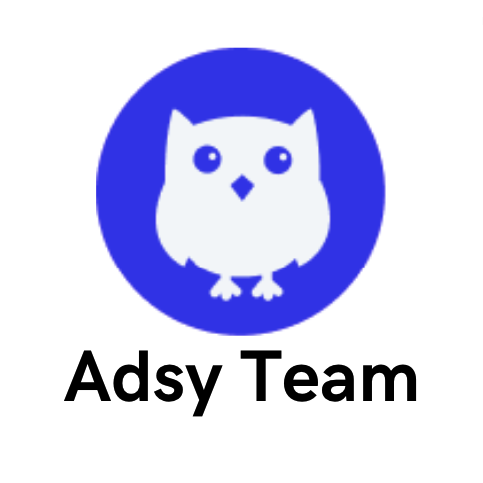You Have to Know This If You Buy Backlinks (Or Plan to)

Link building is the most frustrating thing in SEO. You can create tons of quality content, do constant outreach, and try to build your network for years.
But will it guarantee you quality dofollow links? Hardly.
No matter what you do, your articles (even if they’re a true masterpiece) can stay in a shadow like 96% of content online that gets zero (!) traffic.
Doing quality link building is a lot like trying to get your little cat to obey every command as your old dog does – good luck with that. So, no wonder that some choose to buy backlinks.
But can’t you get links for free? In theory, you can. Still, even the most credible resources often ask for a fee. It’s a fact.
So, what are the pitfalls you should be aware of, and what are the best practices on how to purchase quality backlinks? That’s what we’ll dig into today.
Why people buy backlinks
Alright, let’s make this clear – of course, in the ideal world, it’s better to gain links without paying anything. Everyone can agree with that. But the reality is different…
Source: Reddit
So, why do people purchase backlinks? Well, as you could have imagined, there are millions of reasons for that.
1. Paid links still work (no matter what people say)
The first and probably the most obvious reason is that paid backlinks still work. And sometimes, if you want to get your link for free, you won’t be able to do that (even with extremely helpful and unique content). Why?
Because website owners will still ask you for a fee even if you don’t mention the paid placement. Every SEO expert knows it from experience.
But it’s also proved with numerous experiments, like this one by Ahrefs. Over half of the pages that answered them about guest posting opportunities just named their price tag with no further ado. Frustrating, isn’t it?
Source: Ahrefs
2. Beat competitors who bought their way to the top
Another common reason for people to buy their dofollow links is a competitor who is heavily invested in paid backlinks.
And let’s be honest – no matter how hard you try – it’ll be quite complicated to outnumber them just by doing manual outreach, which can again lead to paying (as we’ve seen above).
Source: Reddit
3. A tough industry (phew…)
One more reason you can often hear out there is a particularly complicated niche.
If you’re working in gambling, CBD, or anything that’s considered to be “sensitive,” we’re sorry to bring this up to you like that – but your chances of getting free links are really low (like almost near zero).
You’ve probably already experienced that. To be honest, not every website will link to this type of business, even when you pay them.
Source: Reddit
Is it a safe practice?
Now, the most common question – is it legal to buy backlinks, and if it is, are paid links safe?
You may have heard the results of Semrush’s Google penalties research showing that all paid links are unsafe. But is this what it really means?
To be clear, any links from spammy sources can and will get your site in trouble sooner or later, whether you paid for them or not.
So remember – links are just a tool, and you should know how to use it correctly.
To avoid any issues, keep in mind these important facts about links:
1. Free links can be even more harmful
If you get backlinks for SEO from low-quality sites, especially comment links, forums, profiles, and web 2.0 directories, it makes it even easier to have your page flagged for spam.
Look, you can get all those backlinks without paying, but it doesn’t mean that you won’t be penalized. Why is that? Because Google can't know whether you paid someone or not. They just can't. But what they can do is analyze how trustworthy the websites that link to you are.
2. Too many outbound links
Beware of websites that have more outbound than inbound links.
This usually means that a website links to pretty much everyone. How does Google react to this? Often simply by discarding the link weight.
At the very least, you will see a traffic drop. Perhaps even a drop in your website’s DA or DR (depending on the case). But if your backlink profile is full of those low-quality backlinks, Google will see that as manipulation.
And manipulation leads directly to an instant manual action (penalty).
3. Pay attention to traffic
Why is traffic important? A website you purchase links from doesn’t only need to have a reasonable domain rating (DR) but also high traffic.
If the DR is sky-high but the traffic is pathetic, it’s a shady page. Friendly unsolicited advice: Don’t get into that.
It's also quite useful to check their traffic over the past months. Ideally, it should be growing (at least a bit) every month, instead of declining.
4. Be flexible
So, in the end, when it comes to Google algorithm and backlinks, there is no clear answer in most cases.
There are many websites with purchased links staying at the top for years. At the same time, there are pages that never used paid links and got filtered out.
You might also like: 7 Types of Bad Backlinks to Get Rid of
Again, it is nearly impossible for Google to understand whether a backlink was purchased.
But you still have to aim for high-quality links, no matter how you get them.
Source: Semrush
The truth is that many (if not all) marketers buy backlinks for their website every now and then. But you have to know what you are doing.
In some cases, the only way to get ahold of some types of really rare links is by paying for them.
For example, you will find it’s easier to buy homepage backlinks or buy .edu and .gov backlinks than to get them yourself.
But don’t think that just because paid links are not as bad as they might seem, you will just transfer some money, and that’s it.
Many webmasters (especially if the site is a high-quality one) actually require you to both make some form of payment and still meet a strict set of conditions:
- They won't agree to link to just any site.
- They often won't link to a commercial landing page or a home page.
- They won't use any spammy anchor text.
- They will have high demands for content quality.
So, if you are hoping to get away with an average article that brings no value or is too promotional, it will be impossible (even when you pay).
How much should you pay?
Backlink prices can vary greatly depending on many factors, like your DA/DR, traffic, location, niche, etc. For example, a link from a directory can cost as little as $0.01 per link.
In the same vein, a link from a low-quality PBN can cost $2-10.
Seems like a good deal, doesn’t it? Not really. If you are offered to buy a backlink packages with 100 or even 1,000 links for like $100, please don’t do it.
We know how tempting that description on Fiverr might seem, but a good link can’t cost one cent.
How much does a good one cost, then? Depending on what you want, the price can range from $10 to $5,000 on average.
Normally, a link from a homepage will be more expensive than a random blog. Likewise, a good guest post starts from $80 but, more often, from around $150.
Basically, on average, you can expect to pay about $200-250 for a guest post or a niche edit on a decent website.
What is a quality link?
Source: @Nick_zv_on X
Well, say you have decided to buy good backlinks; how do you know if the website really meets the standards? Here is what to look out for:
- It has high domain authority (DA/DR).
- It is thematically relevant (i.e., related to your niche).
- It has good current traffic.
- It aligns with your search queries.
- It offers natural anchor tags.
- It shows potential for more traffic growth.
If you want to dig deeper into this topic, you can use these tips to get backlinks that bring the most link juice.
How many backlinks do you need?
Source: @chimammeje on X
So, how many links are good enough? Should you buy 1,000 backlinks or smaller backlink packages? While it's easy to figure out that you may not need thousands of links right away, the answer can be different depending on some factors.
What goals do you have?
Some people want to reach the top of search engine result pages and stay there for years. They may also desire to get there as soon as possible, preferably with a minimal budget, etc.
This goal, while not impossible, may put you at risk of acquiring toxic links unless you are working with a trusted service. So, make sure your goals are reachable and won't harm your site in the long run.
What is the current state of your site?
The number of links you need will be determined by how old your site is.
So, take a look at how many links it already has, what the quality of these links is, whether there are penalties for this site, and how well the on-page optimization is done.
Based on this, you can adjust your strategy.
What is your niche?
There are some problematic niches (e.g., gambling, adult, pharma, etc.) where you can't find white or gray links.
In this case, to rank, you might need thousands of links (and forget about getting them for free).
In niches with high competition, you will need many backlinks for SEO as well. For example, if your average KD is 40, you might easily need >200 dofollow links per year.
But of course, each niche is different, and so the number will vary.
Source: @SEO_SaaS_Marc on X
How is you competition doing?
Some industries are more competitive than others. If it looks promising, you can expect competition to grow very quickly.
For example, when it's a new niche, and everyone wants to get in (as it was with payday loans, essay writing, and casinos), this can affect the number of links you require. Say you calculated that you needed to build 200 links in a year, but competitors built 300 in half a year.
Well, now you will need at least 300 to outrank them. Of course, these are rough calculations because it will depend on the quality of those links, but you get the idea.
How many queries do you want to rank for?
The situation will differ a lot when you want to rank for one search query or, say, 500.
Obviously, if you're aiming for one, then you don't need to get any huge SEO backlink packages. But that’s not the case for a website, which needs to rank for 30, 80, or 200 queries.
At the end of the day, just as there are diverse link building strategies, the links you get will also vary each time based on several factors.
Conclusion
There's a right and a wrong way to buy backlinks, so being aware of the difference can help you avoid making costly mistakes.
You want to stay far away from spammy link sources and choose only the ones that pass the quality assessment checklist mentioned earlier.
Remember to set clear goals and don’t overdo it. Quality over quantity is the most important thing to keep in mind when doing link building.
All trademarks, logos, images, and materials are the property of their respective rights holders.
They are used solely for informational, analytical, and review purposes in accordance with applicable copyright law.







